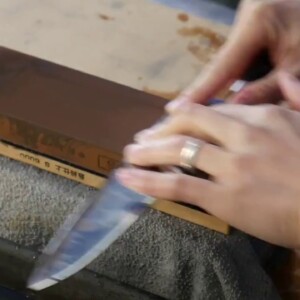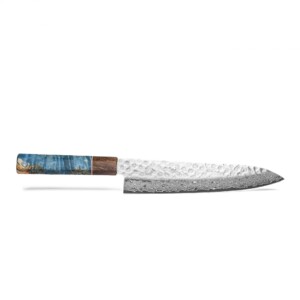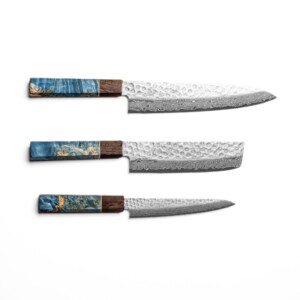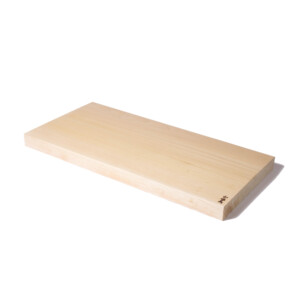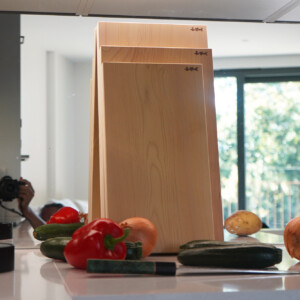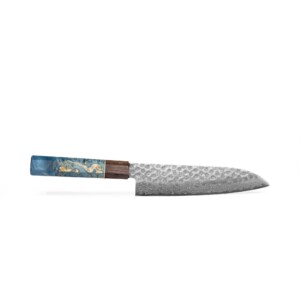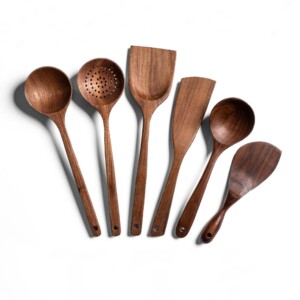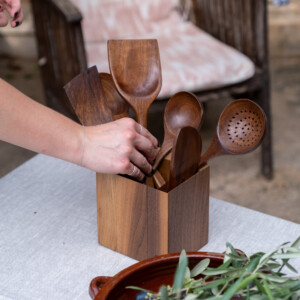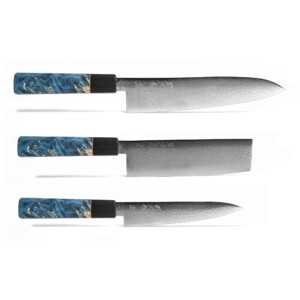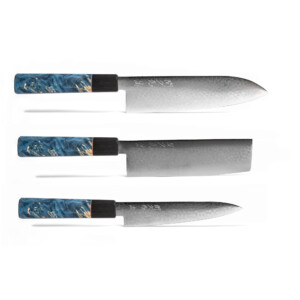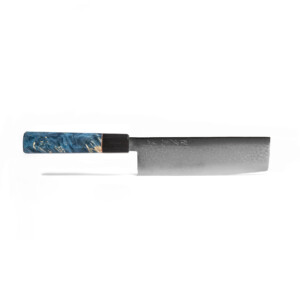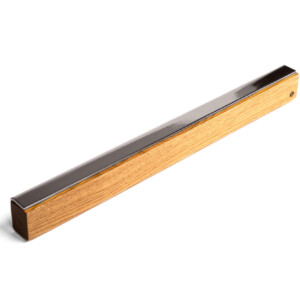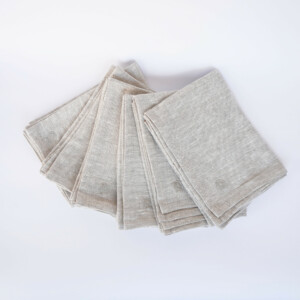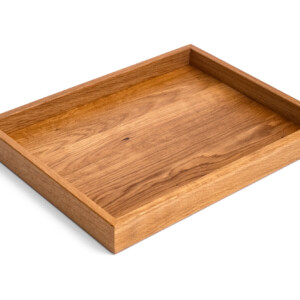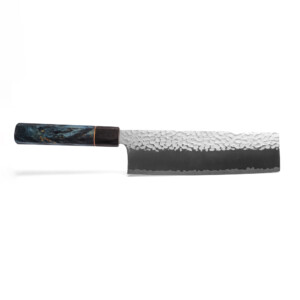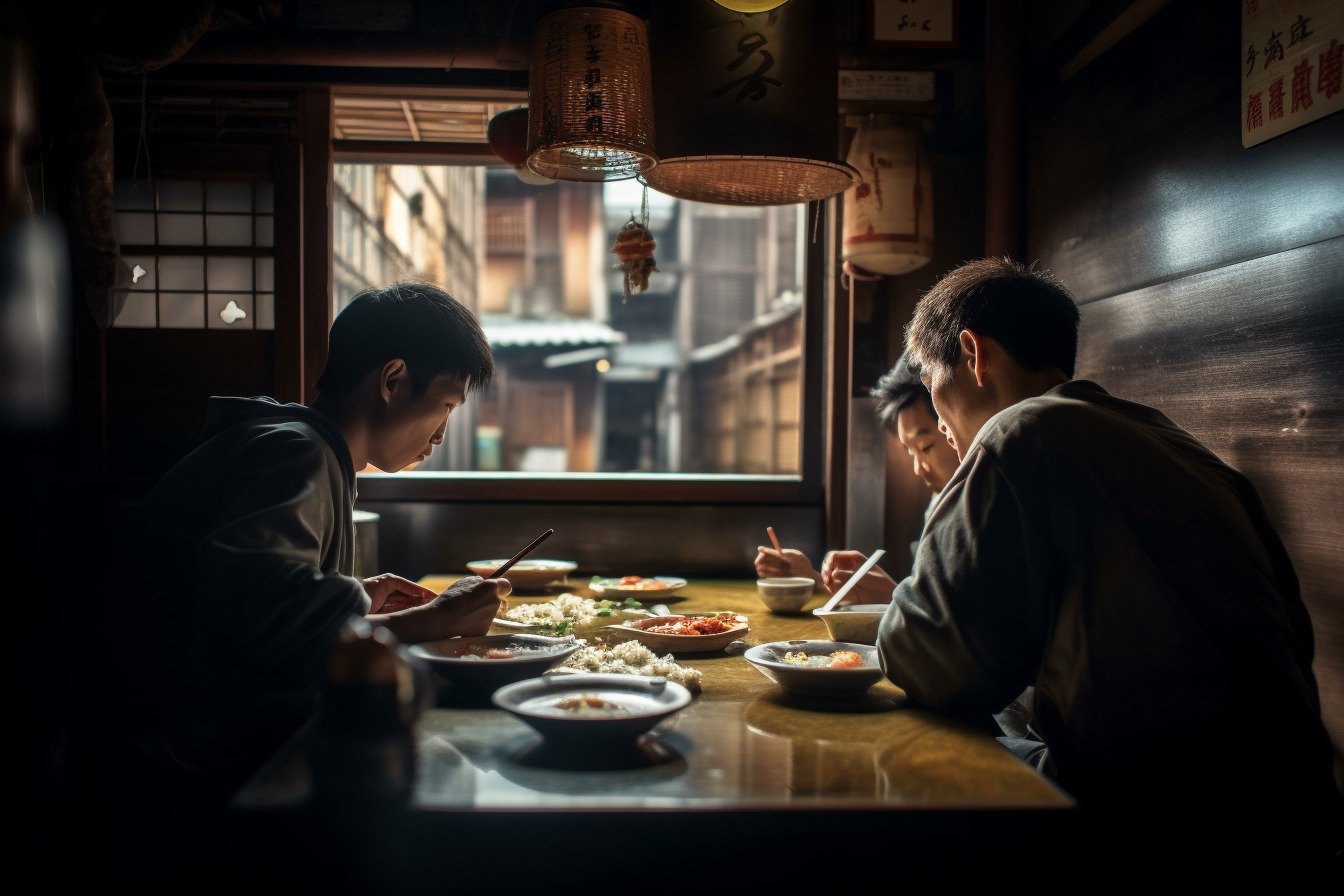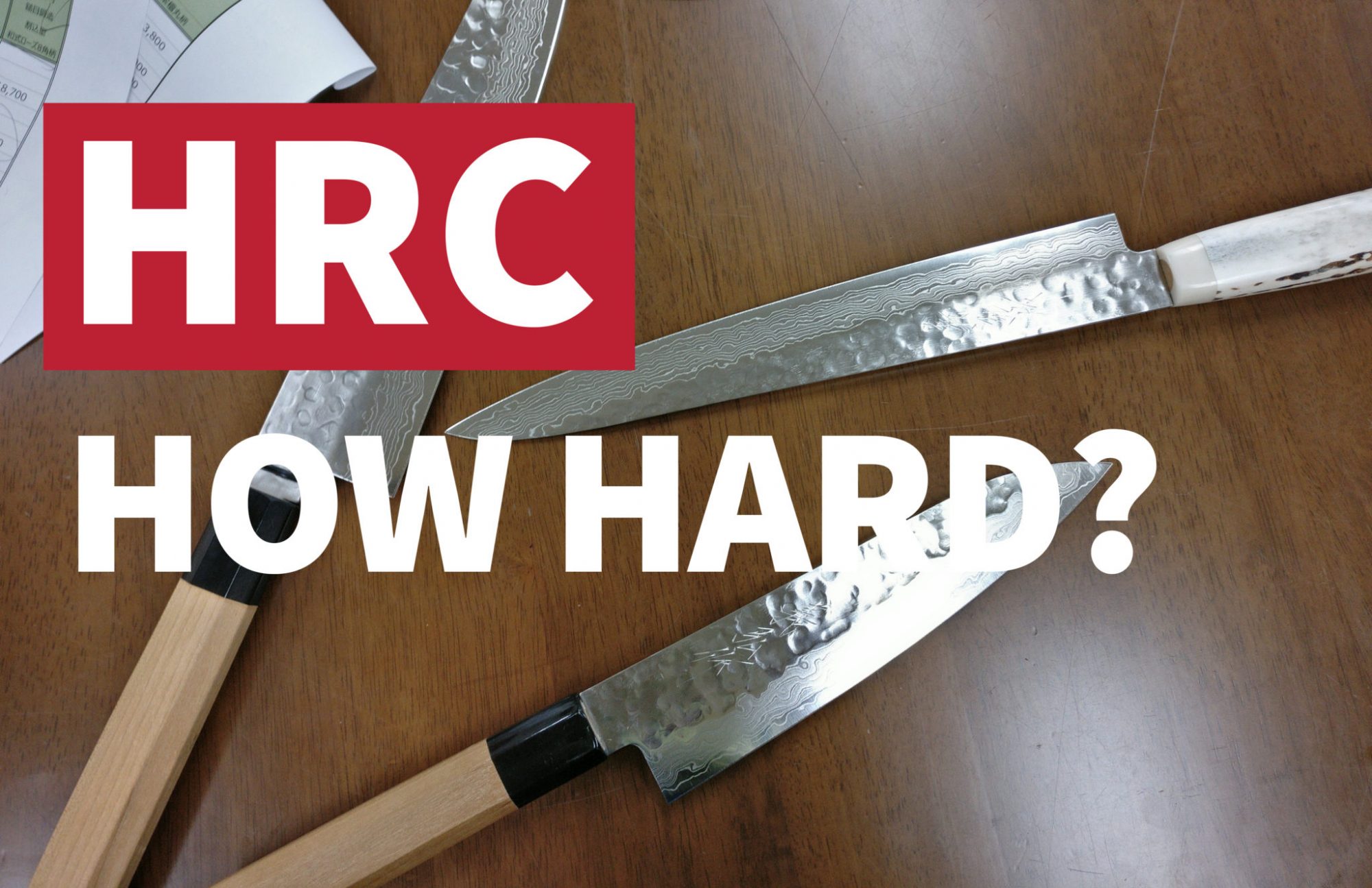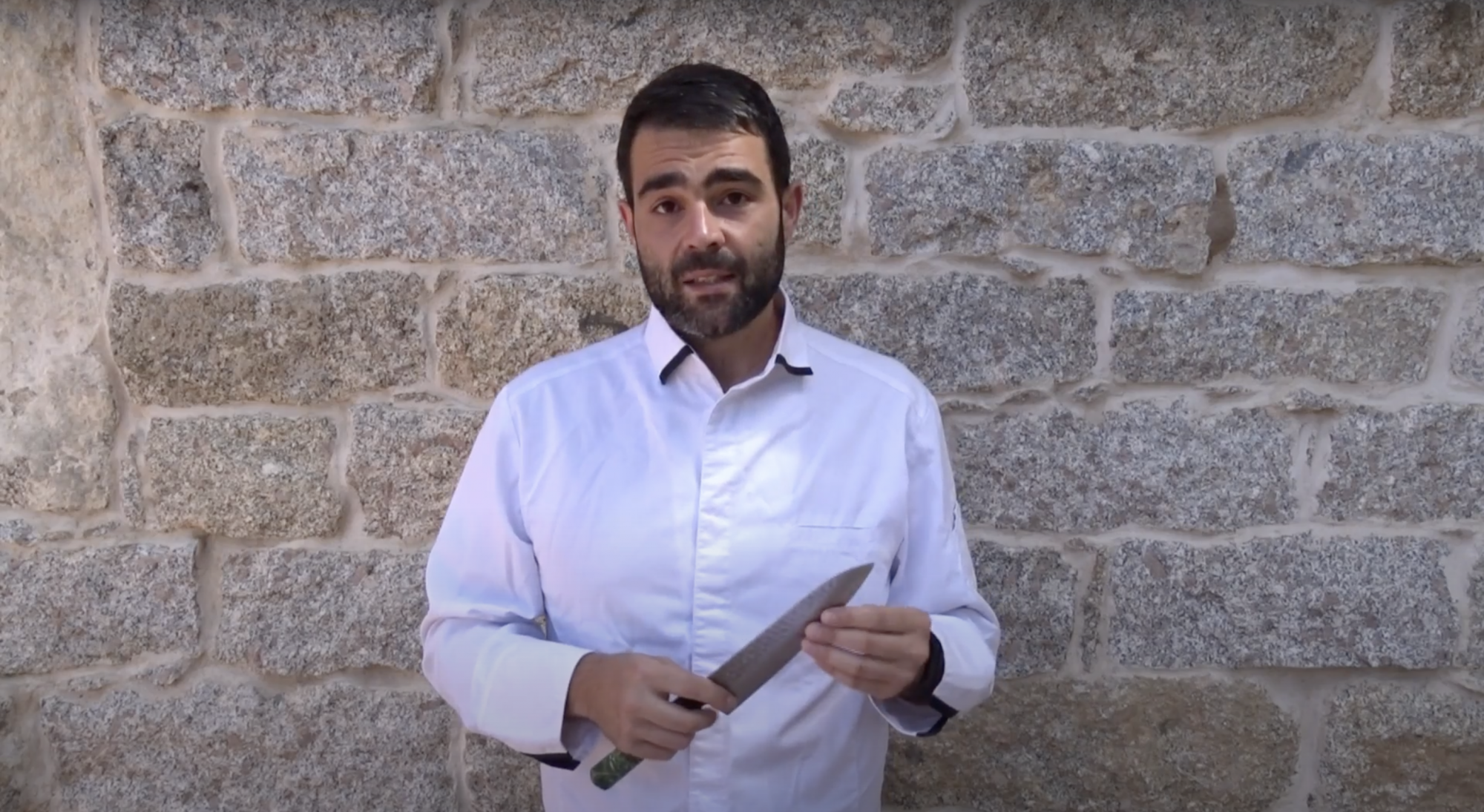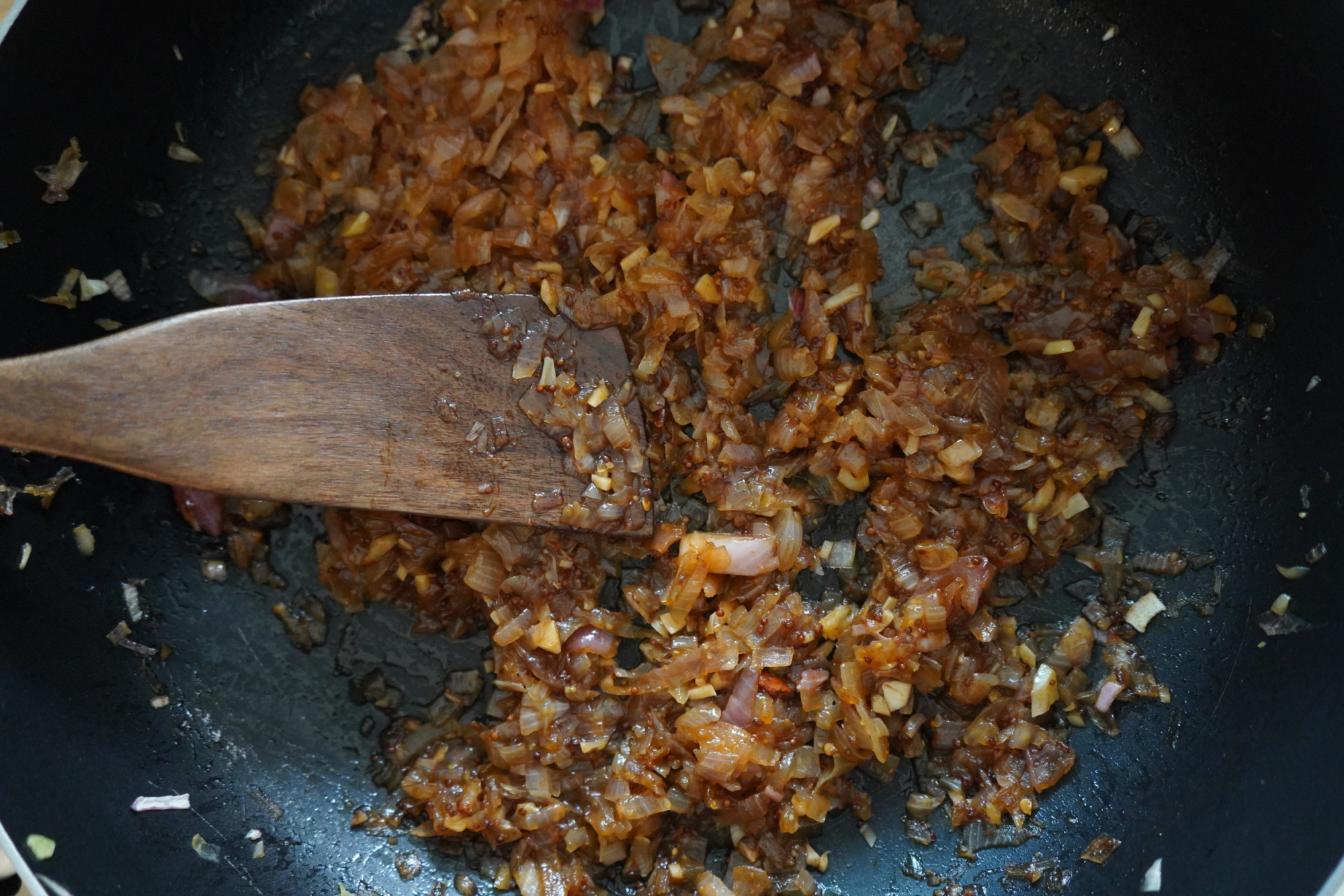Imagine yourself in the kitchen, ready to embark on a culinary adventure. As you reach for your worn-out knife, frustration sets in as it struggles to slice through even the simplest ingredients. So, why should you consider investing in premium knives, particularly those of Japanese origin? In this comprehensive guide, we’ll explore the compelling reasons behind investing in high-quality knives, including Japanese, German, and French options. While each type has its unique qualities, we’ll subtly highlight the advantages of Japanese knives, such as the best-selling Sakai Kyuba stainless damascus collection from Oishya, and why they can be a great long-term investment when you’re thinking about upgrading kitchenware.
The pitfalls of inferior knives
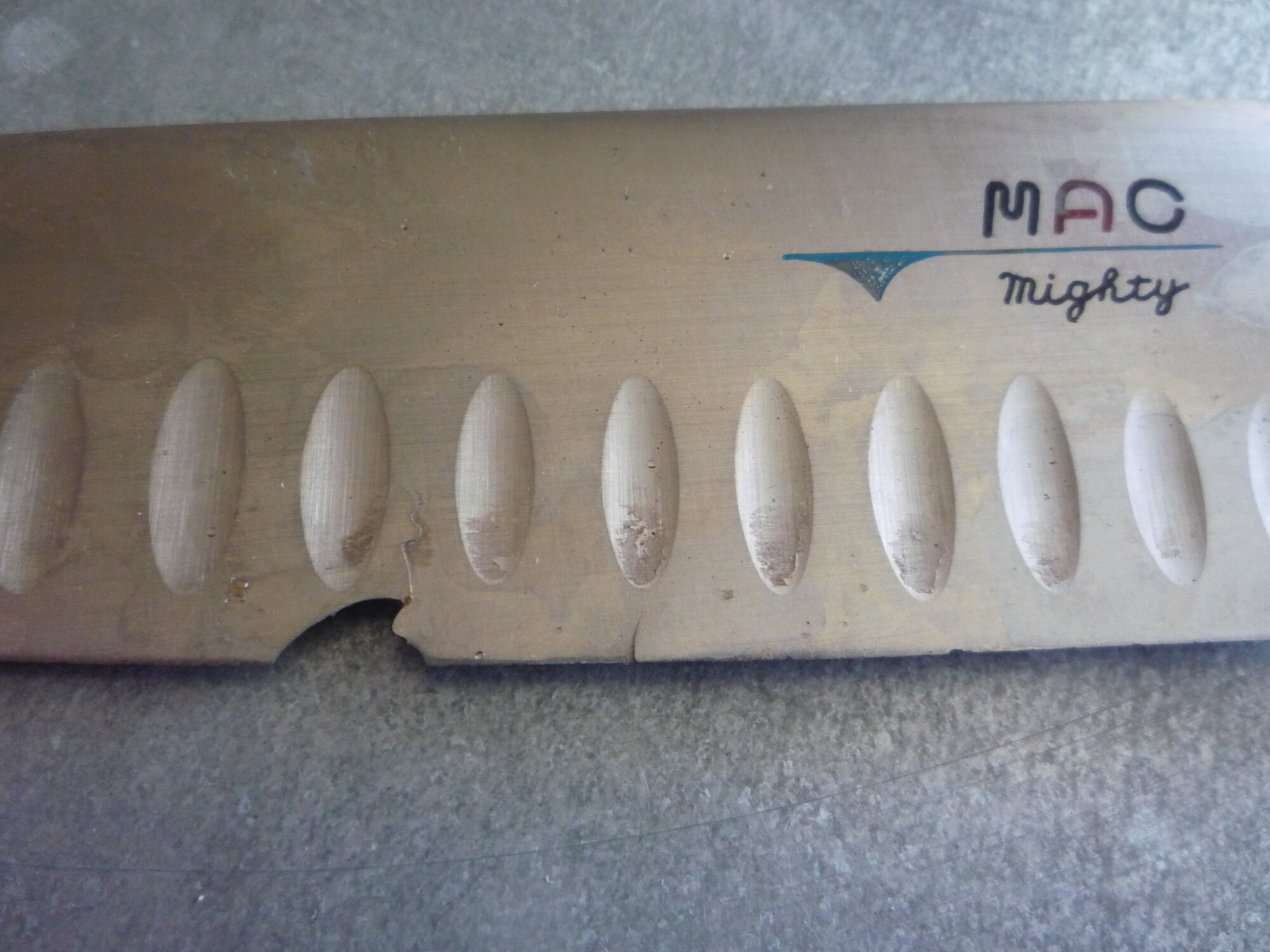
Upgrading your kitchenware is a wise investment that can significantly enhance your cooking experience. Before we embark on the journey of exploring premium knives, it is essential to acknowledge the pitfalls of inferior options and the limitations they impose. Many mass-produced knives found in discount stores or kitchen supply chains may tempt you with their lower price point, but they often fail to deliver when it comes to durability, sharpness, and overall performance. These knives may seem like a budget-friendly choice initially, but they can quickly reveal their shortcomings, ultimately hindering your culinary adventures.
One of the primary issues with inferior knives is their propensity to chip. Lower-quality blades are often made from subpar materials that are prone to breakage when faced with the rigors of everyday kitchen tasks. A knife with a chipped edge not only compromises its functionality but also poses a safety hazard. Imagine trying to slice through a juicy steak, only to have your knife snag and chip, leaving you with an uneven cut and frustration.
In addition to chipping, low-quality knives also tend to dull quickly. Inferior steel lacks the hardness and edge retention necessary to maintain a sharp blade. Consequently, you may find yourself constantly battling with a dull knife that struggles to effortlessly slice through ingredients. This not only slows down your meal preparation but also compromises the quality and presentation of your dishes.
Furthermore, the overall performance of these knives is subpar, leaving much to be desired. They lack the precision, balance, and ergonomics necessary for comfortable and efficient cutting. Inadequate handle designs can lead to discomfort and even cause hand fatigue, particularly during extended periods of food preparation.
By upgrading your kitchenware and investing in premium knives like our Sakai Kyuba, you can overcome these pitfalls and elevate your culinary experience. These knives are meticulously crafted with superior materials and advanced techniques, resulting in blades that are durable, razor-sharp, and designed for optimal performance. Upgrading to high-quality knives not only ensures longevity but also enhances your cooking efficiency, allowing you to work with precision and ease.
Reasons for upgrading kitchenware
- Unparalleled craftsmanship: Japanese knives are renowned for their exceptional craftsmanship, blending tradition and innovation. Skilled artisans meticulously handcraft each blade, using centuries-old techniques passed down through generations. This meticulous attention to detail results in knives that are not only tools but also works of art.
- Razor-sharp precision: The keenness of Japanese knives is legendary. They are crafted to achieve extraordinary sharpness, allowing for effortless slicing, dicing, and chopping. The ultra-thin and finely honed edges of these knives enable delicate and precise cuts that enhance both the visual appeal and taste of your culinary creations.
- Superior steel and edge retention: Japanese knives often utilise high-carbon steel, which is renowned for its exceptional durability and edge retention. This means that they maintain their sharpness for longer periods, reducing the need for frequent sharpening and ensuring a consistent cutting experience over time. The ability to maintain a sharp edge is crucial in achieving optimal performance in the kitchen.
- Versatility in design: Japanese knives offer a wide range of styles and designs to cater to various culinary needs. From the versatile Santoku knife to the precise Nakiri knife, there is a Japanese knife for every purpose. Whether you’re slicing delicate sashimi or tackling tough root vegetables, they can be your best choice for upgrading knives with specific applications.
Comparing German and French Knives

While German and French knives have their own merits, it’s important to understand how they differ from Japanese knives.
- German Knives: They are renowned for their robustness and durability. With thicker and heavier blades, they excel in heavy-duty tasks like breaking down large cuts of meat or tough vegetables. German knives are known for their reliability and solidity, providing a substantial feel in the hand. However, their thicker blades may require more effort for precise cuts.
- French Knives: These knives are celebrated for their elegant design and versatility. With narrower blades compared to German knives, they strike a balance between precision and heft. French knives excel at tasks like dicing, chopping, and precise slicing. Their slender design allows for nimble manoeuvring, ideal for intricate culinary techniques.
Introducing the Sakai Kyuba Stainless Damascus Collection
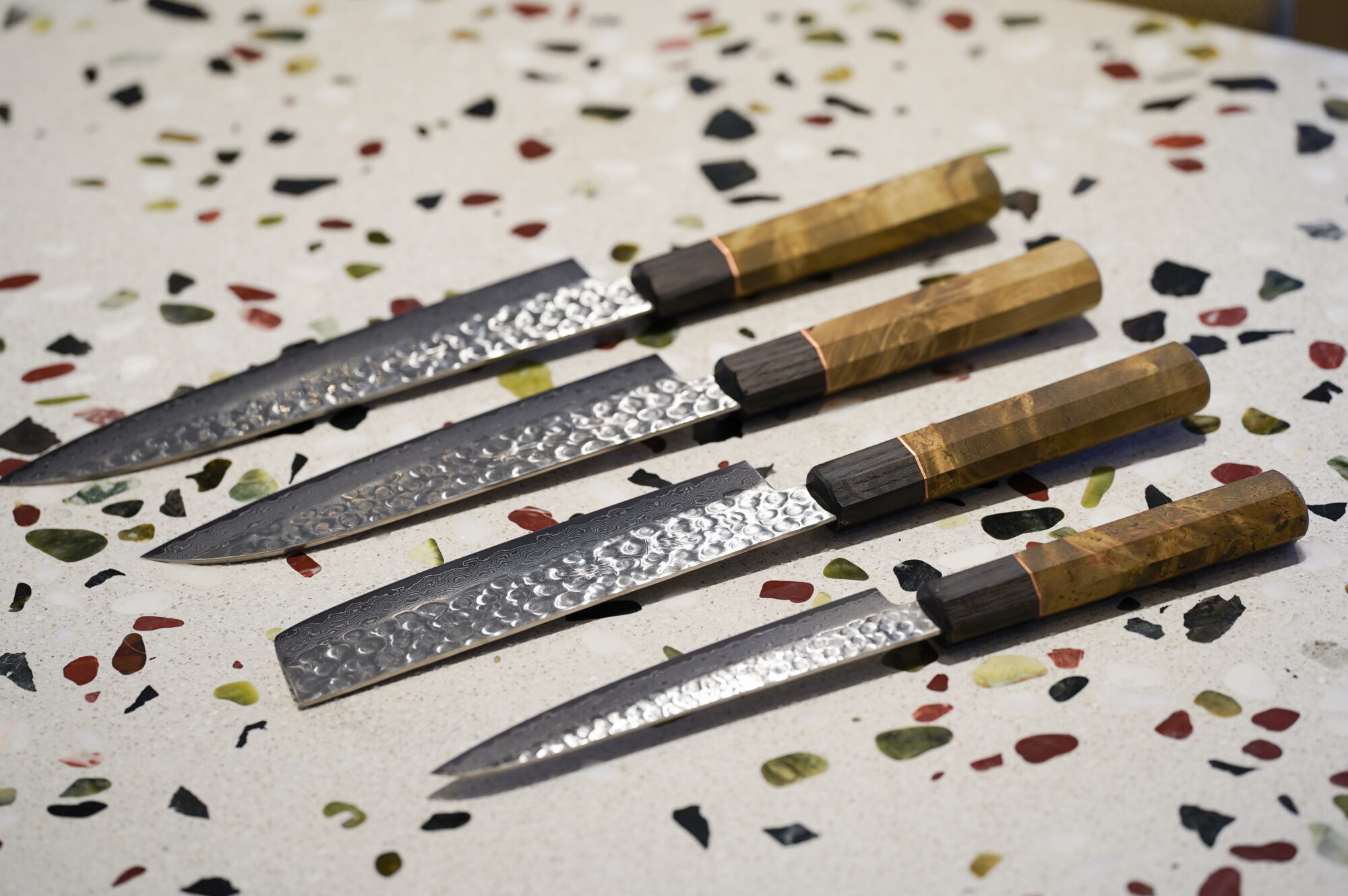
Among the realm of Japanese knives, the Sakai Kyuba stainless damascus collection stands as a testament to exceptional craftsmanship, precision, and longevity. While we acknowledge that there are various exceptional Japanese knife brands available, we would like to highlight the qualities of Sakai Kyuba:
- Exquisite Damascus Patterns: The Sakai Kyuba stainless damascus knives feature stunning Damascus patterns created through a process of layering different types of steel. This not only enhances their visual appeal but also adds strength and durability to the blades.
- Unmatched Precision: Meticulously hand-forged and honed, Sakai Kyuba knives deliver unparalleled sharpness and precision. With their razor-sharp edges, they effortlessly glide through ingredients, allowing for flawless and controlled cuts.
- Enduring Durability: The high-carbon stainless steel used in Sakai Kyuba knives ensures exceptional durability and resistance to corrosion. These knives are built to withstand the rigours of daily use, making them a reliable companion in your culinary endeavours for years to come.
- A Perfect Balance: Sakai Kyuba knives are meticulously balanced, providing optimal control and manoeuvrability. The harmonious synergy between the blade and handle ensures a comfortable grip and reduces fatigue, allowing you to focus on the artistry of cooking.
Upgrading kitchenware and investing in good, sharp knives is a decision that will transform your culinary experience. While German and French knives have their own merits, Japanese knives, such as the Sakai Kyuba stainless damascus collection, offer unparalleled craftsmanship, exceptional sharpness, and enduring quality. These knives are not just tools; they are an extension of your passion and dedication in the kitchen. Try them for yourself 🙂

